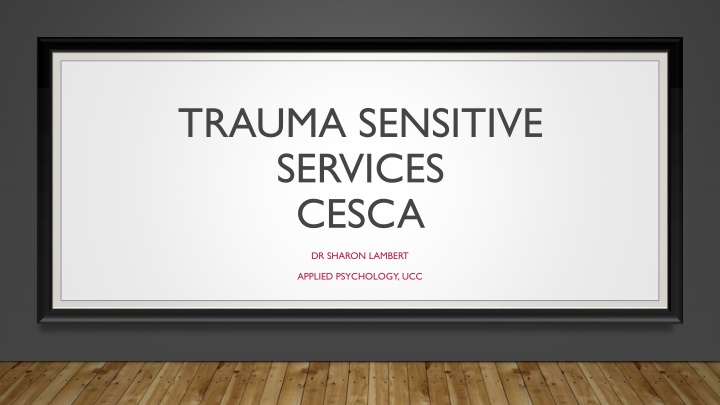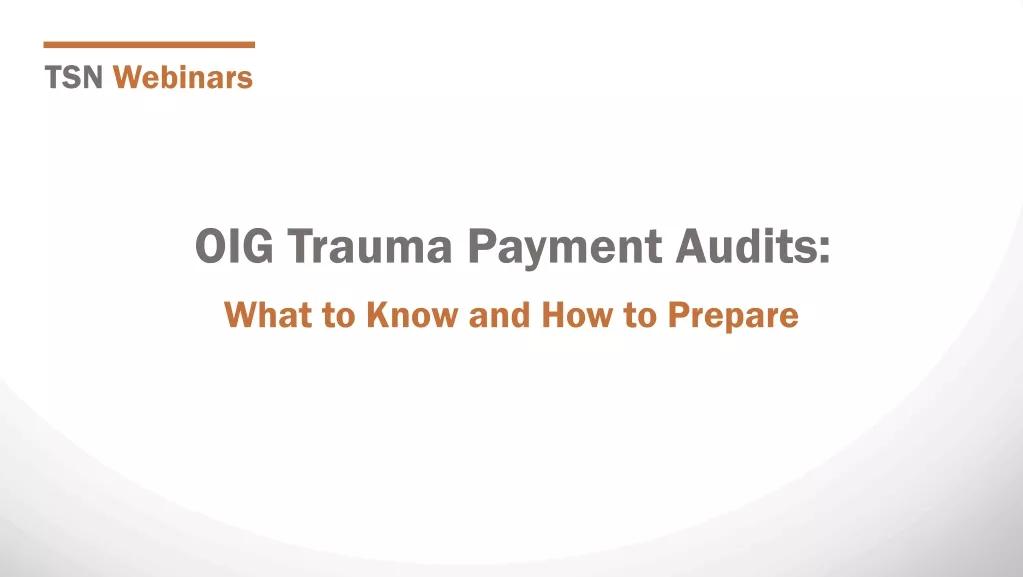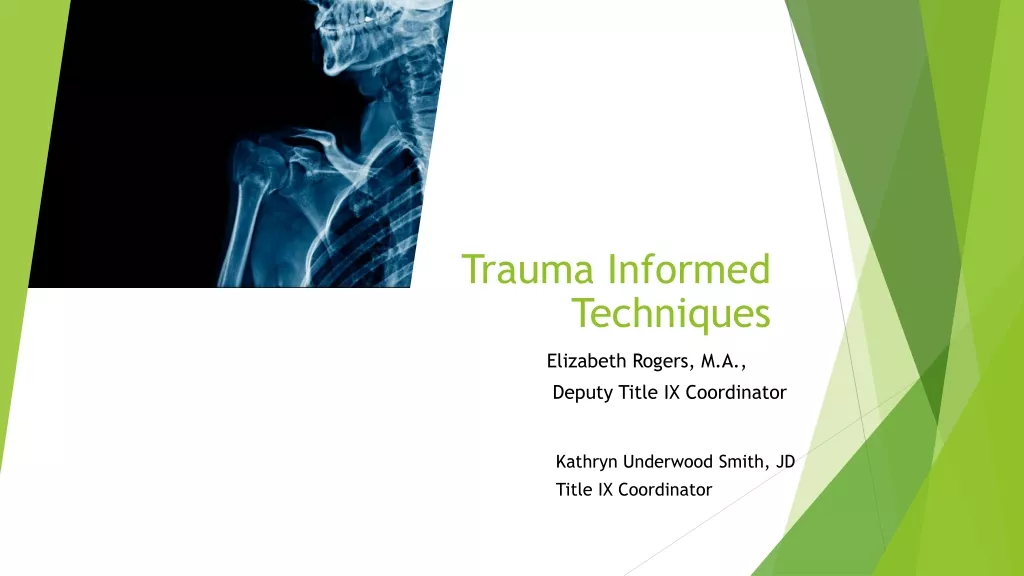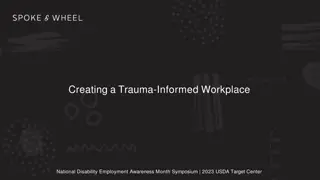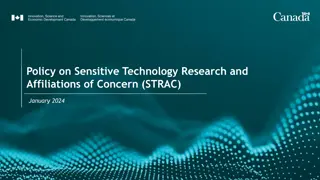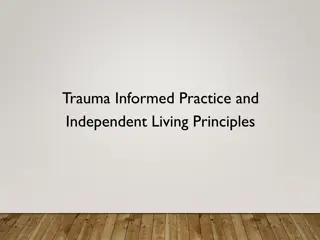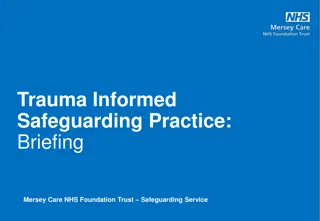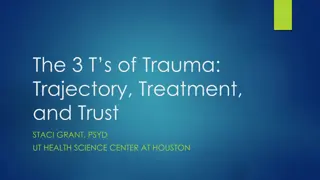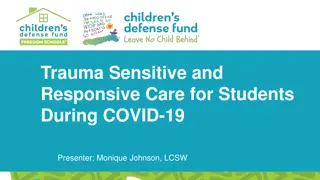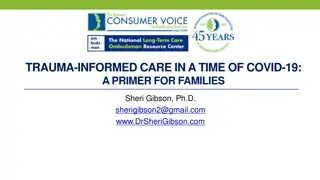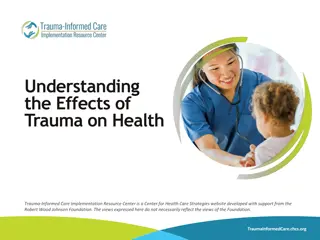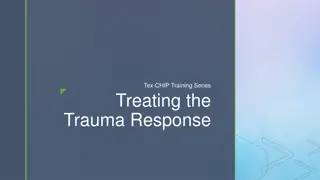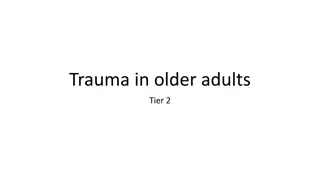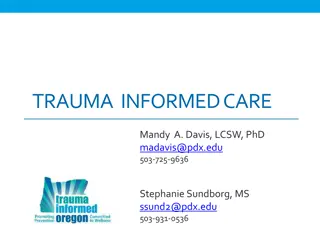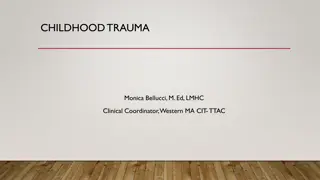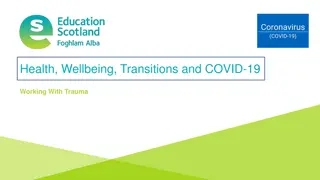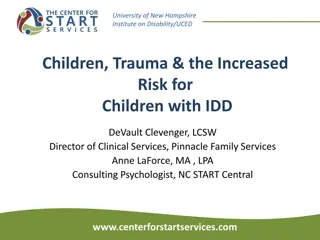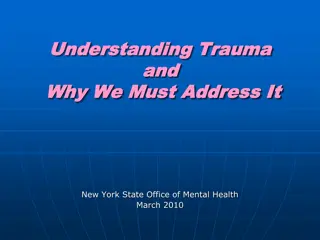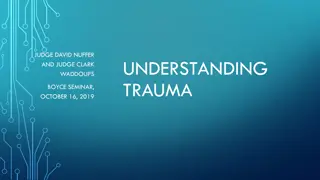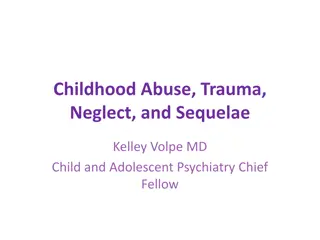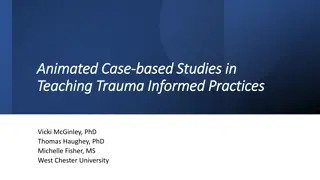Trauma-Sensitive Services & Research: Understanding Different Forms of Trauma
Services provided by Dr. Sharon Lambert in Applied Psychology at UCC focus on trauma in various contexts, such as individual, group, community, historical, and intergenerational trauma. Research findings highlight the impact of trauma on mental health, homelessness, and healthcare access in Cork. The emphasis is on creating a trauma-informed care model to address the complex needs of individuals affected by trauma.
Download Presentation

Please find below an Image/Link to download the presentation.
The content on the website is provided AS IS for your information and personal use only. It may not be sold, licensed, or shared on other websites without obtaining consent from the author.If you encounter any issues during the download, it is possible that the publisher has removed the file from their server.
You are allowed to download the files provided on this website for personal or commercial use, subject to the condition that they are used lawfully. All files are the property of their respective owners.
The content on the website is provided AS IS for your information and personal use only. It may not be sold, licensed, or shared on other websites without obtaining consent from the author.
E N D
Presentation Transcript
TRAUMA SENSITIVE SERVICES CESCA DR SHARON LAMBERT APPLIED PSYCHOLOGY, UCC
TRAUMA Individual, Group, Community Single incident trauma - unexpected and overwhelming Complex trauma - inter-personal and enduring Developmental trauma: exposure to early life trauma ACEs Intergenerational trauma: living with trauma survivors Historical trauma: CSA, residential schools etc. The experience of immigrants, refugees, marginalised groups & ethic minorities
SMALL TS AND BIG TS Tolerable Stress Toxic Stress Allostatic Load
S Lambert UCC (c) Lambert, S. Gill Emerson, G., Horan, A. & Naughton, A. (2017) Moving Towards Trauma Informed Care. A model of research and practice. Cork Simon Community, Cork http://www.corksimon.ie/aces-at- cork-simon/
MAIN FINDINGS Are almost four times more likely to report thinking about suicide when compared to low scorers. High Adversity scorers Are almost eleven times more likely to report being incarcerated when compared to low scorers. Are likely to have a mental health diagnosis when compared to low scorers. Are likely to have be clinically depressed when compared to low scorers. Are likely to have self-reported their depression when compared to low scorers.
Ninety people experiencing homelessness in Cork city interviewed between April and November 2017 by 10 medical and social science researchers. HEALTH OF THE HOMELESS POPULATION IN CORK Henry, S., Naughton, A., Bradley, C., Murphy, R., & Lambert, S. (2019) Interviews all conducted on-site in homeless shelters, hostels & rough sleeper day services. A cross-sectional correlational design
Raised in care were less likely to: have their own GP be taking medications on a long-term basis
RESIDENTIAL PROFILE Analysis revealed an objective mental health diagnosis in 44% of cases, which increased to 92 % for self-reported mental health disorders, primarily anxiety and depression. Dual Diagnosis confounding the issue High ACE scores ( 4), were associated with higher reports of mental health disorders, suicidal ideation, higher levels of imprisonment, more treatment attempts Lambert, Murphy & Moynihan (2018)
MAIN FINDINGS Are almost four times more likely to report thinking about suicide when compared to low ACE scorers. High ACE scorers Are almost eleven times more likely to report being incarcerated when compared to low ACE scorers. Are likely to have a mental health diagnosis when compared to low ACE scorers. Are likely to have be clinically depressed when compared to low ACE scorers. Are likely to have self-reported their depression when compared to low ACE scorers.
3.6 times more likely to have grown up in a household where there was domestic violence 3 times more likely to have grown up in a household where there was somebody with a mental health illness WOMEN IN CONTACT WITH PROBATION SERVICE 2.6 times more likely to have grown up in a house where there was substance dependence 2.5 6 times more likely to have experienced childhood sexual abuse 2.5 times more likely to have experienced physical abuse in childhood twice as likely to have experienced verbal abuse in childhood
WOMEN IN CONTACT WITH PROBATION SERVICE 21% had spent time in either foster care or a group home 91% of the women had experienced intimate partner violence in adulthood 67% were homeless at the time of the research 71% had experienced homelessness in their lifetime
S Lambert UCC (c) YOUNG PEOPLE: JUSTICE SYSTEM
STRESS & THE BRAIN 1. The Thinking Centre is under-activated 2. The Emotion Regulation Centre is under-activated 3. The Fear Centre is over-activated.
CO-OCCURRING ISSUES Mental Health Substance Use
Exacerbation of symptoms Increased risk of violence, suicide & homelessness Greater complexity in diagnosis and assessment More complex & costly intervention strategies DUAL DIAGNOSIS Non compliance with treatment or meds Increase relapse rates and severity Increased burden on carers and family Rejection by psychiatric services Rejection by drug services
IMPACT OF DRUG RELATED DEATHS ON FAMILIES (LAMBERT ET AL. 2020) Because he was feeling suicidal, and I rang Doctor (name), and I spoke to her and I was out in the hall, the landline was out in the hall, and [my brother] was sitting on the wall, facing me in the little hall, and he said, and tell her this, and tell her that and tell her I m coming off drugs and she said Is he coming off drugs? I said He s off heroin three weeks , I said That s not the problem, he s suicidal *imitates doctor* Oh we don t deal with drug cases and I m like, But he s suicidal *imitates doctor* Yeah but, no, you ll have to get him to go to a drugs place . So the next day I ring her, was it, it was the next day wasn t it, a couple of days after, I rang and I asked her, and I said I rang you the other day about me brother She said Oh how s he getting on? and I said He s fucking dead and I just hung up the phone, that was the end of it then, but I was very very angry at her, really angry at that, you know
Moynihan, Lambert , Flynn, Kinehan.(2020). Reasons why men who present with self-harm leave Accident and Emergency before next care recommendations Safety and other Service Users Waiting in the shadows Client-clinician relationships A compounding of distress Expectations from experience
S Lambert UCC (c) EXPOSURE TO TRAUMA Compassion Fatigue Secondary Traumatic Stress Burnout
CONTAGION EFFECT An online survey (Oct 18-May 19) was fully completed by 576 frontline service providers in Ireland. We asked about: Sociodemographic information Their Professional Quality of Life (30-item ProQOL, Stamm, 2010) Their early negative childhood experiences, if any (10-item ACE scale Felitti et al., 1998) An indication of how stressful it was to complete the survey on a scale of 0 10 ( completing the survey was not emotionally difficult to completing the survey was very difficult )
MAIN FINDINGS Lower ACE Longer service Social care/work, counsellors/therapists (including drug & alcohol workers) Higher ACE Higher ACE Women scored higher on ACE scores than men
TRAUMA INFORMED DESIGN Ref: Australian Institute of Family Studies
RESPONDING Organisational Culture Supervision Reflective Practice Trauma Aware Public Service Provision Self Compassion
